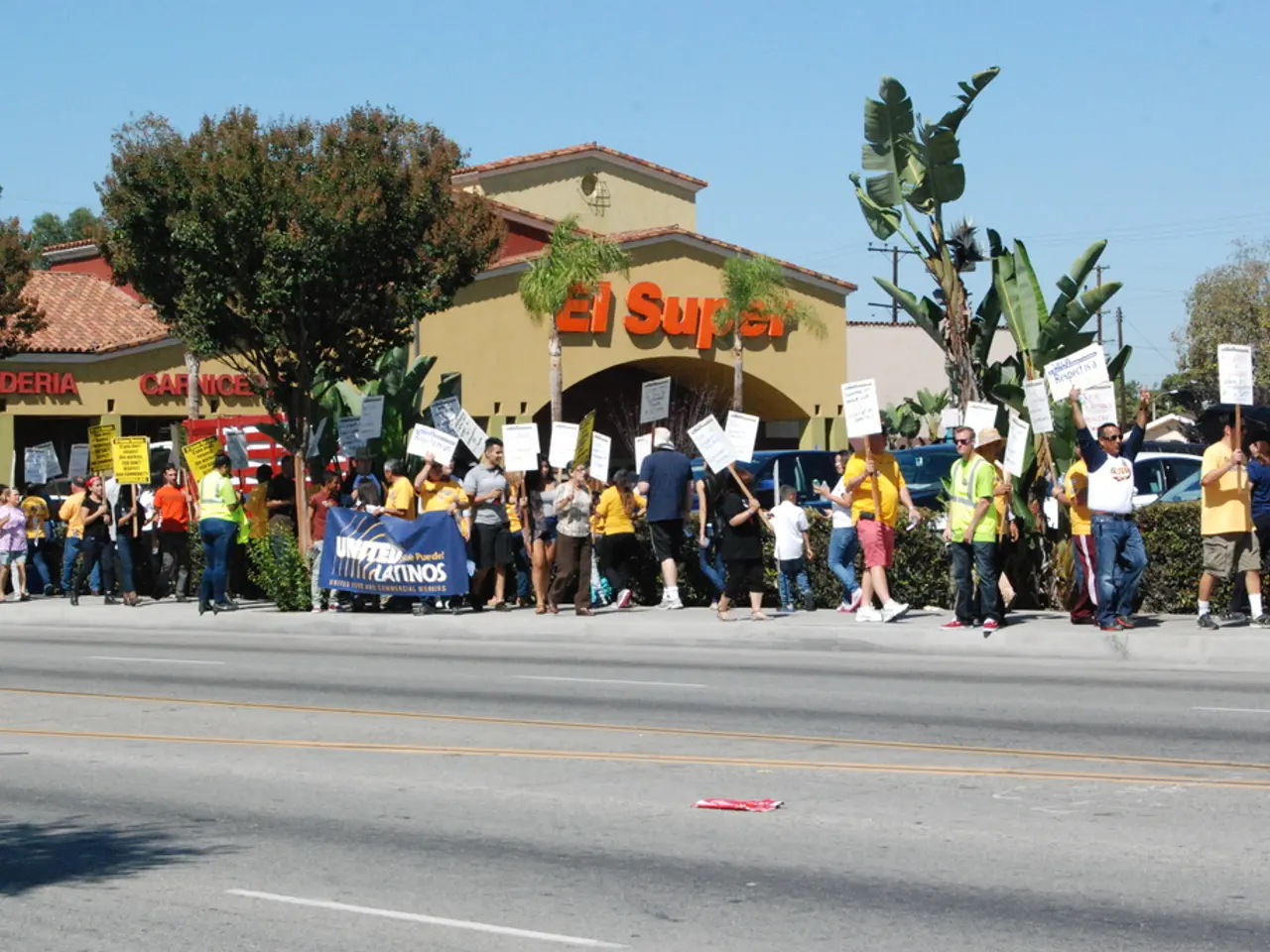Voter preference leans towards a third party excluding Elon Musk's potential involvement
In the annals of American politics, third parties have historically faced significant challenges and limited long-term success due to the entrenched two-party system. However, the recent announcement by tech entrepreneur Elon Musk of his intention to launch a new political party, the "America Party," has sparked renewed interest in the potential for third-party politics.
One of the most successful modern examples of a third party was Ross Perot's Reform Party in the 1990s. Perot, a billionaire businessman, ran as an independent in 1992 and captured about 19% of the popular vote, advocating for deficit reduction and political reform. This momentum briefly translated into a real political force, even electing Minnesota’s Jesse Ventura as governor in 1998. However, the Reform Party eventually faded into obscurity by the early 2000s, unable to sustain lasting influence against the dominance of Democrats and Republicans.
Musk's America Party is entering this difficult terrain anew. While no one with Musk's financial resources and track record of innovation has attempted to launch a third party before, early skepticism remains high. This is reflected in a recent poll by Quinnipiac University, which shows that only 17% of voters would consider joining Musk's party, with more than three-quarters (77%) giving a thumbs-down. Similarly, a CNN poll found that only 25% of adults and 22% of voters favor Musk's third party.
Despite these hurdles, many Americans—including large percentages of independents and moderate Republicans and Democrats—express strong demand for a viable third-party alternative. Musk aims to fill this void. However, experts caution that building a lasting party requires far more groundwork than social media announcements, pointing to the sustained organizational effort that Perot undertook.
Musk's focus seems to be on challenging Democrats and Republicans in congressional races rather than running a presidential candidate. This strategy could present a unique opportunity for the America Party, as the success rate for third parties, independents, or write-ins in U.S. congressional elections since 1970 is very low, with about 0.2% of winners. Notable exceptions include Senators Angus King of Maine and Bernie Sanders of Vermont, who account for more than half of these victories.
However, Musk's America Party could face financial challenges, despite his wealth. Businessman Ross Perot's Reform Party, for instance, struggled with financial constraints, despite Perot's vast resources. Musk's woes went into hyperdrive during his divorce from President Donald Trump, which may have impacted his public perception and, in turn, his party's prospects.
In summary, while Musk's America Party is still in its infancy, it represents a significant development in the ongoing debate about the viability of third parties in the U.S. two-party system. Whether Musk’s America Party can build on the legacy of the Reform Party remains to be seen, but its formation underscores ongoing public dissatisfaction with the status quo.
- Musk's America Party, entering the toughened realm of policy-and-legislation, faces daunting challenges, as reflected in recent polls, with only 17% of voters considering joining, while the majority express skepticism.
- The formation of Musk's America Party, despite his financial resources, has sparked curiosity in the realm of general-news, as it presents an opportunity to challenge the dominance of Democrats and Republicans in congressional races, with a small percentage of success for third parties, independents, or write-ins recorded since 1970.







